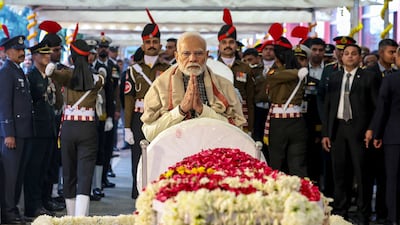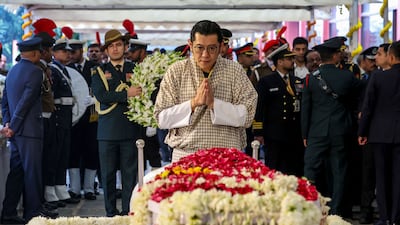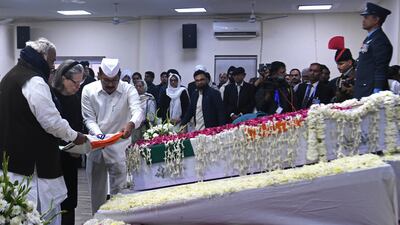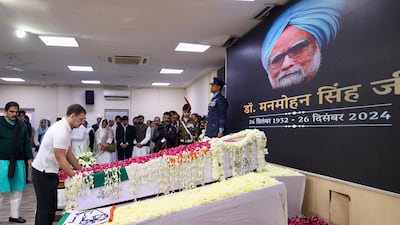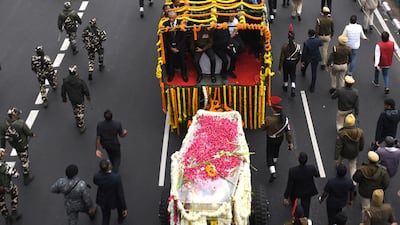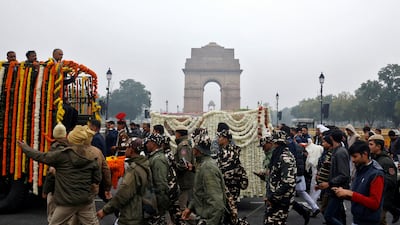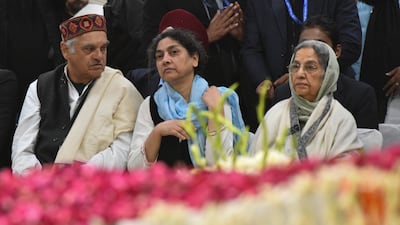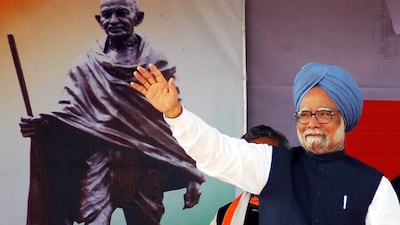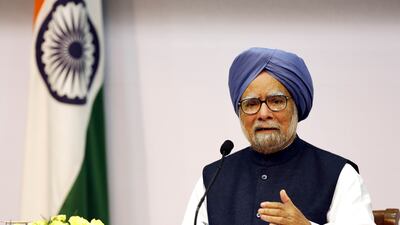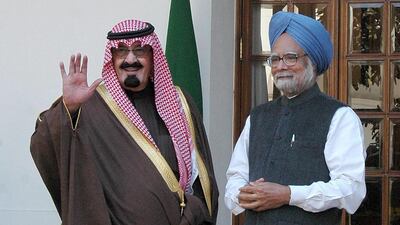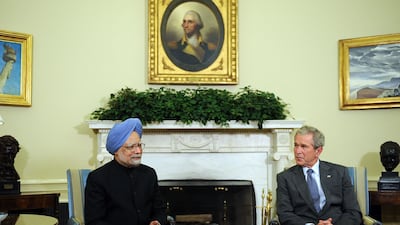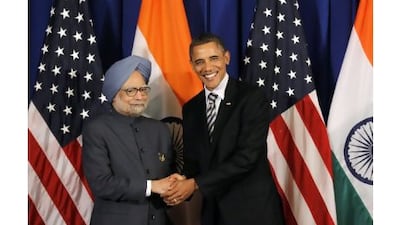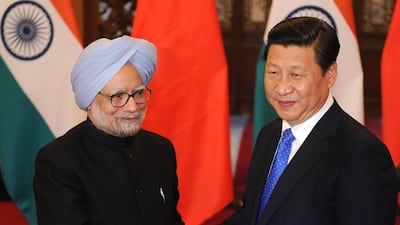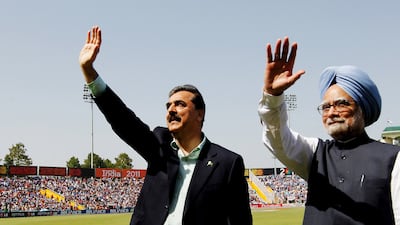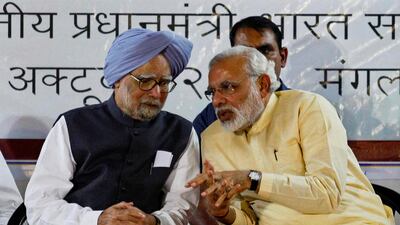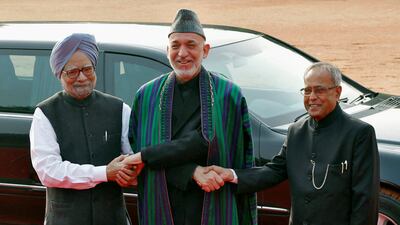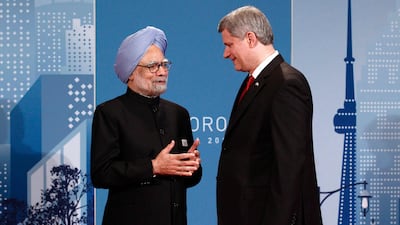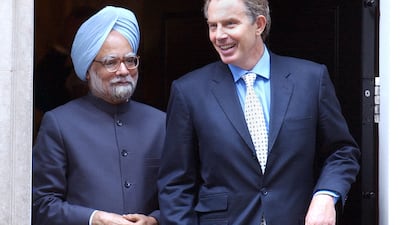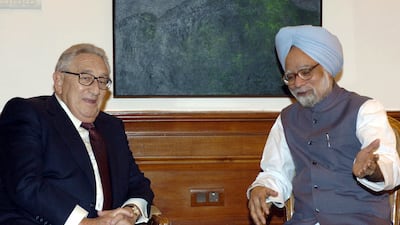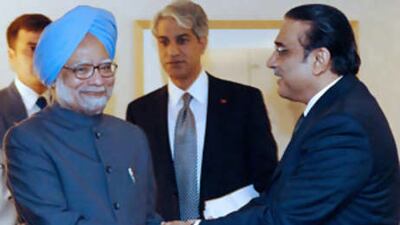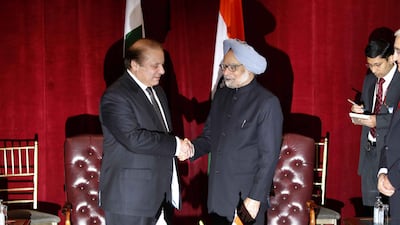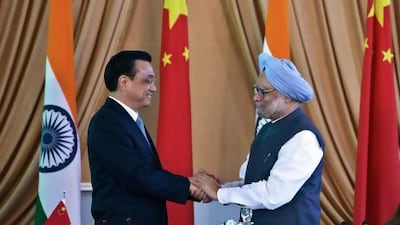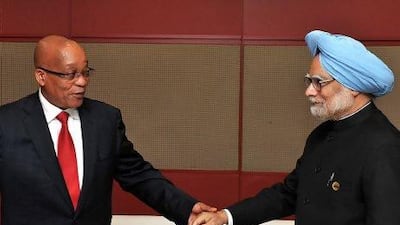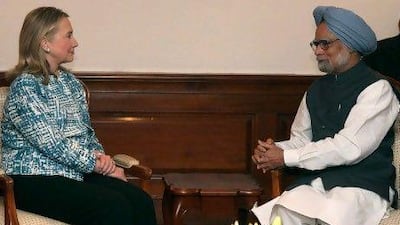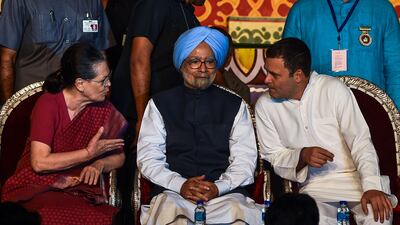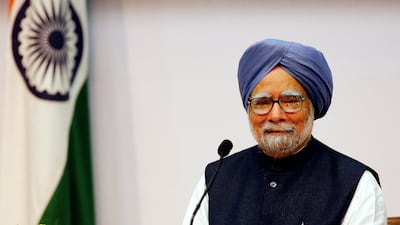Following the death of Manmohan Singh at the age of 92 on Thursday, one can’t help but wonder whether India will ever have another technocratic prime minister like him. Given the populist turn the country and large parts of the world have taken in recent years, this appears unlikely for the foreseeable future.
The Bharatiya Janata Party-led government in New Delhi and the main opposition party, the Indian National Congress, of which Dr Singh was a long-time member and leader, appear to have embraced overlapping versions of economic populism that will probably have worried the late prime minister even in retirement.
The federal government, under Prime Minister Narendra Modi, has undoubtedly maintained fiscal discipline over the past decade. It has instituted some meaningful reforms, like institutionalising a nationwide Goods and Services Tax. But it has baulked at other big-ticket items by walking back much-needed land reforms and later repealing three potentially far-reaching farm laws.
In a surprise move, the government ruled out joining the Regional Comprehensive Economic Partnership, a free-trade agreement that, among others, includes China and the 10 countries that make up the Association of South-East Asian Nations. It was a clear indication that New Delhi was going in the protectionist direction.
But what is more troubling is the enthusiasm shared by almost every Indian political party, particularly in individual states, to deliver a range of direct benefits to the citizens, from farm-loan waivers to cooking gas to free bus travel for women. Some of this welfarism is targeted and even necessary, given that about 129 million Indians continue to live in extreme poverty, but there are genuine concerns that many state governments are spending beyond their means simply to stay in power.
This isn’t unique to India. Many other countries, too, have poured resources into large welfare programmes since the onset of the Covid-19 pandemic. But a period of austerity that followed the 2007-2008 global financial crisis appears to have been replaced by an era of exploding public debt, expected to exceed $100 trillion at the end of the current year, according to the International Monetary Fund.
Dr Singh would no doubt have been expected to loosen the government purse strings in times of emergency. In fact, he sought government interventions, as long as they were paid for. As prime minister, from 2004 to 2014, he even put in place the makings of a modern welfare state, enacting schemes such as the Mahatma Gandhi National Rural Employment Guarantee Act and the Right to Education Act.
As the political scientist Ashutosh Varshney wrote in The Indian Express recently: "Manmohan Singh’s welfarism viewed the underprivileged as rights-bearing citizens, not simply as recipients of largesse."
And yet he was cut from a different philosophical cloth, given his focus on market reforms and fierce conviction that people needed to be given economic freedom. The Economist’s description of Dr Singh as “India’s economic freedom fighter” can hardly be disputed.
In 1991, Dr Singh memorably quoted Victor Hugo, telling his fellow MPs that “no power on Earth can stop an idea whose time has come”. This “idea” was that it was time for India to shed its socialist past and embrace a capitalist future by moving in the direction of liberalisation, globalisation and privatisation.
Over the next five years as finance minister, he worked with the country’s seemingly ossified bureaucracy to ensure that the government could embark on some of the large-scale economic reforms that he envisioned. These included the abolition of most trade licences, inviting foreign investment in the stock market and reconfiguring the banking sector.
Singh’s struggle to deliver prosperity for all is the classic conundrum that today’s moderate politicians around the world also have to contend with
The fruits of his government’s efforts, and those of subsequent administrations, transformed India from a country that faced an acute balance of payments crisis in the late 1980s to becoming the world’s fifth-largest economy. These reforms pulled the country out of its four per cent growth rate to achieve closer to 10 per cent economic expansion on a consistent basis over the following years.
The momentum generated by this “idea” of creating economic freedom proved unstoppable, even decades later; the Oxford Poverty and Human Development Initiative states that more than 270 million people were lifted out of poverty between 2005-06 and 2015-16, a 10-year period during most of which Dr Singh served as prime minister.
However, no historical figure is perfect and Dr Singh has had his critics.
Many on the left have pointed to India’s continuing poverty and a rise in income inequality that his policies engendered over three decades. Many on the economic right have claimed he didn’t do enough, such as pushing through agricultural reforms that today’s government has burnt its fingers in trying to implement.
Dr Singh’s struggle to please all, and more importantly to deliver prosperity for all, is the classic conundrum that today’s moderate, technocratic politicians around the world also have to contend with. As parties become more ideologically extreme, and the spirit of consensus is depleted in a fast-changing world, it could be a while before a post-Cold War historical figure like Dr Singh emerges again, let alone thrives.
Lexus LX700h specs
Engine: 3.4-litre twin-turbo V6 plus supplementary electric motor
Power: 464hp at 5,200rpm
Torque: 790Nm from 2,000-3,600rpm
Transmission: 10-speed auto
Fuel consumption: 11.7L/100km
On sale: Now
Price: From Dh590,000
UAE currency: the story behind the money in your pockets
More on animal trafficking
More from Neighbourhood Watch:
All%20We%20Imagine%20as%20Light
%3Cp%3E%3Cstrong%3EDirector%3A%20%3C%2Fstrong%3EPayal%20Kapadia%3C%2Fp%3E%0A%3Cp%3E%3Cstrong%3EStarring%3A%3C%2Fstrong%3E%20Kani%20Kusruti%2C%20Divya%20Prabha%2C%20Chhaya%20Kadam%3C%2Fp%3E%0A%3Cp%3E%3Cstrong%3ERating%3A%3C%2Fstrong%3E%204%2F5%3C%2Fp%3E%0A
COMPANY PROFILE
Name: Kumulus Water
Started: 2021
Founders: Iheb Triki and Mohamed Ali Abid
Based: Tunisia
Sector: Water technology
Number of staff: 22
Investment raised: $4 million
Liverpool's all-time goalscorers
Ian Rush 346
Roger Hunt 285
Mohamed Salah 250
Gordon Hodgson 241
Billy Liddell 228
Results
5pm: Maiden (PA) Dh80,000 (Turf) 1,200m, Winner: ES Rubban, Antonio Fresu (jockey), Ibrahim Aseel (trainer)
5.30pm: Handicap (PA) Dh85,000 (T) 1,200m, Winner: Al Mobher, Sczcepan Mazur, Ibrahim Al Hadhrami
6pm: Handicap (PA) Dh80,000 (T) 2,200m, Winner: Jabalini, Tadhg O’Shea, Ibrahim Al Hadhrami
6.30pm: Wathba Stallions Cup (PA) Dh70,000 (T) 2,200m, Winner: AF Abahe, Tadgh O’Shea, Ernst Oertel
7pm: Handicap (PA) Dh85,000 (T) 1,600m, Winner: AF Makerah, Tadhg O’Shea, Ernst Oertel
7.30pm: Maiden (TB) Dh80,000 (T) 1,600m, Winner: Law Of Peace, Tadhg O’Shea, Satish Seemar
Gully Boy
Director: Zoya Akhtar
Producer: Excel Entertainment & Tiger Baby
Cast: Ranveer Singh, Alia Bhatt, Kalki Koechlin, Siddhant Chaturvedi
Rating: 4/5 stars
Groom and Two Brides
Director: Elie Semaan
Starring: Abdullah Boushehri, Laila Abdallah, Lulwa Almulla
Rating: 3/5
Why seagrass matters
- Carbon sink: Seagrass sequesters carbon up to 35X faster than tropical rainforests
- Marine nursery: Crucial habitat for juvenile fish, crustations, and invertebrates
- Biodiversity: Support species like sea turtles, dugongs, and seabirds
- Coastal protection: Reduce erosion and improve water quality
Specs
Engine: 51.5kW electric motor
Range: 400km
Power: 134bhp
Torque: 175Nm
Price: From Dh98,800
Available: Now
Specs
Engine: Duel electric motors
Power: 659hp
Torque: 1075Nm
On sale: Available for pre-order now
Price: On request
SPEC SHEET
Display: 10.9" Liquid Retina IPS, 2360 x 1640, 264ppi, wide colour, True Tone, Apple Pencil support
Chip: Apple M1, 8-core CPU, 8-core GPU, 16-core Neural Engine
Memory: 64/256GB storage; 8GB RAM
Main camera: 12MP wide, f/1.8, Smart HDR
Video: 4K @ 25/25/30/60fps, full HD @ 25/30/60fps, slo-mo @ 120/240fps
Front camera: 12MP ultra-wide, f/2.4, Smart HDR, Centre Stage; full HD @ 25/30/60fps
Audio: Stereo speakers
Biometrics: Touch ID
I/O: USB-C, smart connector (for folio/keyboard)
Battery: Up to 10 hours on Wi-Fi; up to 9 hours on cellular
Finish: Space grey, starlight, pink, purple, blue
Price: Wi-Fi – Dh2,499 (64GB) / Dh3,099 (256GB); cellular – Dh3,099 (64GB) / Dh3,699 (256GB)
The specs: 2018 Nissan 370Z Nismo
The specs: 2018 Nissan 370Z Nismo
Price, base / as tested: Dh182,178
Engine: 3.7-litre V6
Power: 350hp @ 7,400rpm
Torque: 374Nm @ 5,200rpm
Transmission: Seven-speed automatic
Fuel consumption, combined: 10.5L / 100km
Company profile
Company name: Nestrom
Started: 2017
Co-founders: Yousef Wadi, Kanaan Manasrah and Shadi Shalabi
Based: Jordan
Sector: Technology
Initial investment: Close to $100,000
Investors: Propeller, 500 Startups, Wamda Capital, Agrimatico, Techstars and some angel investors
The specs
Engine: Four electric motors, one at each wheel
Power: 579hp
Torque: 859Nm
Transmission: Single-speed automatic
Price: From Dh825,900
On sale: Now
Racecard
2pm Handicap Dh 90,000 1,800m
2.30pm Handicap Dh120,000 1,950m
3pm Handicap Dh105,000 1,600m
3.30pm Jebel Ali Classic Conditions Dh300,000 1,400m
4pm Maiden Dh75,000 1,600m
4.30pm Conditions Dh250,000 1,400m
5pm Maiden Dh75,000 1,600m
5.30pm Handicap Dh85,000 1,000m
The National selections:
2pm Arch Gold
2.30pm Conclusion
3pm Al Battar
3.30pm Golden Jaguar
4pm Al Motayar
4.30pm Tapi Sioux
5pm Leadership
5.30pm Dahawi
The biog
Nickname: Mama Nadia to children, staff and parents
Education: Bachelors degree in English Literature with Social work from UAE University
As a child: Kept sweets on the window sill for workers, set aside money to pay for education of needy families
Holidays: Spends most of her days off at Senses often with her family who describe the centre as part of their life too
SUZUME
%3Cp%3EDirector%3A%20Makoto%20Shinkai%3C%2Fp%3E%0A%3Cp%3EStars%3A%20Nanoka%20Hara%2C%20Hokuto%20Matsumura%2C%20Eri%20Fukatsu%3C%2Fp%3E%0A%3Cp%3ERating%3A%204%2F5%3C%2Fp%3E%0A
The five pillars of Islam
1. Fasting
2. Prayer
3. Hajj
4. Shahada
5. Zakat
Paatal Lok season two
Directors: Avinash Arun, Prosit Roy
Stars: Jaideep Ahlawat, Ishwak Singh, Lc Sekhose, Merenla Imsong
Rating: 4.5/5
Mercer, the investment consulting arm of US services company Marsh & McLennan, expects its wealth division to at least double its assets under management (AUM) in the Middle East as wealth in the region continues to grow despite economic headwinds, a company official said.
Mercer Wealth, which globally has $160 billion in AUM, plans to boost its AUM in the region to $2-$3bn in the next 2-3 years from the present $1bn, said Yasir AbuShaban, a Dubai-based principal with Mercer Wealth.
“Within the next two to three years, we are looking at reaching $2 to $3 billion as a conservative estimate and we do see an opportunity to do so,” said Mr AbuShaban.
Mercer does not directly make investments, but allocates clients’ money they have discretion to, to professional asset managers. They also provide advice to clients.
“We have buying power. We can negotiate on their (client’s) behalf with asset managers to provide them lower fees than they otherwise would have to get on their own,” he added.
Mercer Wealth’s clients include sovereign wealth funds, family offices, and insurance companies among others.
From its office in Dubai, Mercer also looks after Africa, India and Turkey, where they also see opportunity for growth.
Wealth creation in Middle East and Africa (MEA) grew 8.5 per cent to $8.1 trillion last year from $7.5tn in 2015, higher than last year’s global average of 6 per cent and the second-highest growth in a region after Asia-Pacific which grew 9.9 per cent, according to consultancy Boston Consulting Group (BCG). In the region, where wealth grew just 1.9 per cent in 2015 compared with 2014, a pickup in oil prices has helped in wealth generation.
BCG is forecasting MEA wealth will rise to $12tn by 2021, growing at an annual average of 8 per cent.
Drivers of wealth generation in the region will be split evenly between new wealth creation and growth of performance of existing assets, according to BCG.
Another general trend in the region is clients’ looking for a comprehensive approach to investing, according to Mr AbuShaban.
“Institutional investors or some of the families are seeing a slowdown in the available capital they have to invest and in that sense they are looking at optimizing the way they manage their portfolios and making sure they are not investing haphazardly and different parts of their investment are working together,” said Mr AbuShaban.
Some clients also have a higher appetite for risk, given the low interest-rate environment that does not provide enough yield for some institutional investors. These clients are keen to invest in illiquid assets, such as private equity and infrastructure.
“What we have seen is a desire for higher returns in what has been a low-return environment specifically in various fixed income or bonds,” he said.
“In this environment, we have seen a de facto increase in the risk that clients are taking in things like illiquid investments, private equity investments, infrastructure and private debt, those kind of investments were higher illiquidity results in incrementally higher returns.”
The Abu Dhabi Investment Authority, one of the largest sovereign wealth funds, said in its 2016 report that has gradually increased its exposure in direct private equity and private credit transactions, mainly in Asian markets and especially in China and India. The authority’s private equity department focused on structured equities owing to “their defensive characteristics.”
Company%20profile
%3Cp%3E%3Cstrong%3ECompany%20name%3A%3C%2Fstrong%3E%20Letswork%3Cbr%3E%3Cstrong%3EStarted%3A%3C%2Fstrong%3E%202018%3Cbr%3E%3Cstrong%3EBased%3A%3C%2Fstrong%3E%20Dubai%3Cbr%3E%3Cstrong%3EFounders%3A%20%3C%2Fstrong%3EOmar%20Almheiri%2C%20Hamza%20Khan%3Cbr%3E%3Cstrong%3ESector%3A%3C%2Fstrong%3E%20co-working%20spaces%3Cbr%3E%3Cstrong%3EInvestment%20stage%3A%3C%2Fstrong%3E%20%242.1%20million%20in%20a%20seed%20round%20with%20investors%20including%20500%20Global%2C%20The%20Space%2C%20DTEC%20Ventures%20and%20other%20angel%20investors%3Cbr%3E%3Cstrong%3ENumber%20of%20employees%3A%3C%2Fstrong%3E%20about%2020%3C%2Fp%3E%0A
Diriyah%20project%20at%20a%20glance
%3Cp%3E-%20Diriyah%E2%80%99s%201.9km%20King%20Salman%20Boulevard%2C%20a%20Parisian%20Champs-Elysees-inspired%20avenue%2C%20is%20scheduled%20for%20completion%20in%202028%0D%3Cbr%3E-%20The%20Royal%20Diriyah%20Opera%20House%20is%20expected%20to%20be%20completed%20in%20four%20years%0D%3Cbr%3E-%20Diriyah%E2%80%99s%20first%20of%2042%20hotels%2C%20the%20Bab%20Samhan%20hotel%2C%20will%20open%20in%20the%20first%20quarter%20of%202024%0D%3Cbr%3E-%20On%20completion%20in%202030%2C%20the%20Diriyah%20project%20is%20forecast%20to%20accommodate%20more%20than%20100%2C000%20people%0D%3Cbr%3E-%20The%20%2463.2%20billion%20Diriyah%20project%20will%20contribute%20%247.2%20billion%20to%20the%20kingdom%E2%80%99s%20GDP%0D%3Cbr%3E-%20It%20will%20create%20more%20than%20178%2C000%20jobs%20and%20aims%20to%20attract%20more%20than%2050%20million%20visits%20a%20year%0D%3Cbr%3E-%20About%202%2C000%20people%20work%20for%20the%20Diriyah%20Company%2C%20with%20more%20than%2086%20per%20cent%20being%20Saudi%20citizens%0D%3C%2Fp%3E%0A
More from Neighbourhood Watch:
Islamophobia definition
A widely accepted definition was made by the All Party Parliamentary Group on British Muslims in 2019: “Islamophobia is rooted in racism and is a type of racism that targets expressions of Muslimness or perceived Muslimness.” It further defines it as “inciting hatred or violence against Muslims”.
The%20specs%3A%202024%20Mercedes%20E200
%3Cp%3E%3Cstrong%3EEngine%3A%20%3C%2Fstrong%3E2.0-litre%20four-cyl%20turbo%20%2B%20mild%20hybrid%0D%3Cbr%3E%3Cstrong%3EPower%3A%20%3C%2Fstrong%3E204hp%20at%205%2C800rpm%20%2B23hp%20hybrid%20boost%0D%3Cbr%3E%3Cstrong%3ETorque%3A%20%3C%2Fstrong%3E320Nm%20at%201%2C800rpm%20%2B205Nm%20hybrid%20boost%0D%3Cbr%3E%3Cstrong%3ETransmission%3A%20%3C%2Fstrong%3E9-speed%20auto%0D%3Cbr%3E%3Cstrong%3EFuel%20consumption%3A%20%3C%2Fstrong%3E7.3L%2F100km%0D%3Cbr%3E%3Cstrong%3EOn%20sale%3A%20%3C%2Fstrong%3ENovember%2FDecember%0D%3Cbr%3E%3Cstrong%3EPrice%3A%20%3C%2Fstrong%3EFrom%20Dh205%2C000%20(estimate)%3C%2Fp%3E%0A
The%20specs
%3Cp%3E%3Cstrong%3EPowertrain%3A%20%3C%2Fstrong%3ESingle%20electric%20motor%0D%3Cbr%3E%3Cstrong%3EPower%3A%20%3C%2Fstrong%3E201hp%0D%3Cbr%3E%3Cstrong%3ETorque%3A%20%3C%2Fstrong%3E310Nm%0D%3Cbr%3E%3Cstrong%3ETransmission%3A%20%3C%2Fstrong%3ESingle-speed%20auto%0D%3Cbr%3E%3Cstrong%3EBattery%3A%20%3C%2Fstrong%3E53kWh%20lithium-ion%20battery%20pack%20(GS%20base%20model)%3B%2070kWh%20battery%20pack%20(GF)%0D%3Cbr%3E%3Cstrong%3ETouring%20range%3A%20%3C%2Fstrong%3E350km%20(GS)%3B%20480km%20(GF)%0D%3Cbr%3E%3Cstrong%3EPrice%3A%20%3C%2Fstrong%3EFrom%20Dh129%2C900%20(GS)%3B%20Dh149%2C000%20(GF)%0D%3Cbr%3E%3Cstrong%3EOn%20sale%3A%3C%2Fstrong%3E%20Now%3C%2Fp%3E%0A
